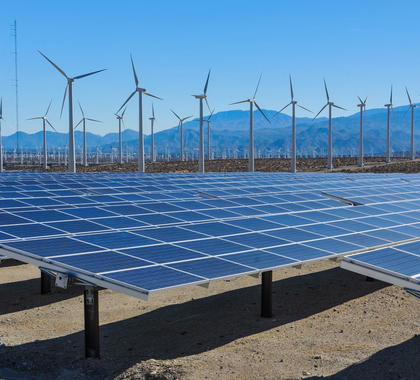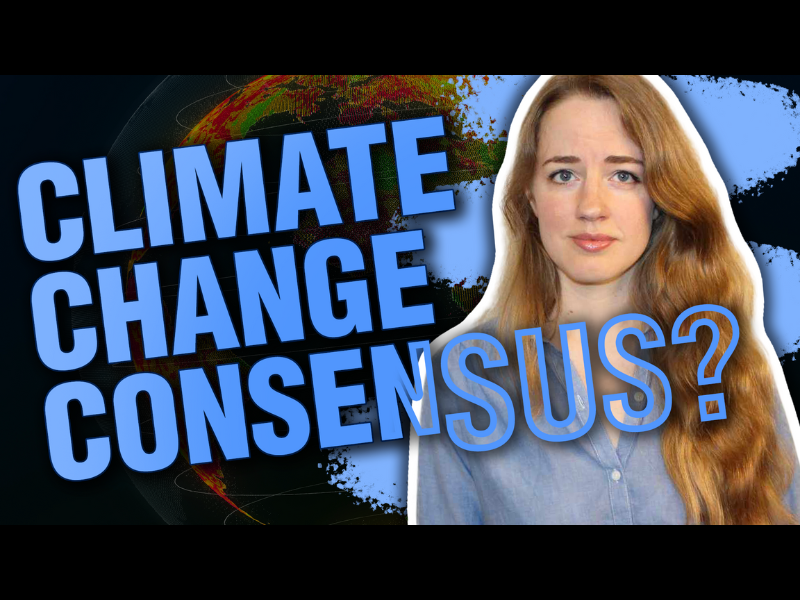A new study from the Pacific Research Institute and Power The Future states California could decrease greenhouse gas (GHG) emissions while simultaneously saving Golden State households substantial money. The authors note California should scrap “green” policies and adopt a market-based energy strategy.
In Legislating Energy Prosperity, author Wayne Winegarden details how California “implements 218 different energy efficiency regulations, incentives, and tax programs that reduce job and income growth across the state but are felt more severely in the Central Valley and Inland Empire regions, areas which are much poorer than coastal communities. These lost opportunities are often justified based on the need to reduce overall GHG emissions.”
Beyond those regulations, California also imposes a renewable energy mandate that will force state utility companies to generate 100 percent of their electricity from “renewable” sources such as wind and solar by 2045, a cap-and-trade scheme that covers around 85 percent of the state’s GHG emissions, retail-rate net-metering regulations (as well as a mandate that all new homes constructed from 2020 onward must have a solar electricity source), a low carbon fuel standard, and other costly, regressive programs that maker it harder for the state’s low-income residents to earn, save, and spend on necessities.
These mandates and regulations have pushed the state’s residential electricity prices 46 percent higher than the national average, and 67 percent higher for businesses. California’s gasoline prices were also 37 percent higher than the national average before the advent of the COVID-19 pandemic, and reached a point where they were 55 percent higher in late April.
Despite all of these costly “green” policies, carbon dioxide emissions have only fallen 9.3 percent in California since 2007, the year those emissions peaked, compared to 14 percent for the country as a whole.
Winegarden argues that easing the low carbon fuel standard and the state’s excessive mileage standards would save state residents $9.6 billion to $11 billion annually. Further, eliminating its green electricity policies would save residents $5.3 billion to $15.7 billion annually. Overall, savings to residents from more market-friendly policies could reach $14.8 billion to $26.7 billion. This works out to $1,147 to $2,077 per household.
“Treating the total potential gasoline and electricity cost reductions … as the equivalent of a major tax cut, eliminating these excessive costs would increase average annual real state GDP growth between 3.1 percent and 3.3 percent,” Winegarden notes. “Over 10 years, such an increase in the annual economic growth rate would increase the size of California’s economy, adjusted for inflation, by between $122.5 billion and $223.4 billion. Due to this accelerated economic growth, Californians would benefit from faster job growth and an acceleration in the growth of family incomes – and state government would also benefit with billions in new tax revenue to fund important priorities. This would be a welcome economic boost at a time of a significant statewide recession.”
“These higher costs that the state’s energy policies impose on California’s families are even less justifiable today due to the recession caused by the coronavirus pandemic,” Winegarden concludes. “As the recession has decreased the financial security of millions of California families, reducing the unnecessary economic burdens California’s energy policies cause is more imperative than ever. By eliminating these costs, the state can thrive while also promoting its natural beauty and environment.”
As this study details, the higher energy prices guaranteed by a switch from fossil fuels to “renewable” electricity sources, such as wind or solar, lead to slower economic growth. Affordable energy is the key to productivity growth and the production of virtually all goods and services. To ensure that fewer California households experience excessively rising energy costs, elected officials and agency regulators should repeal all subsidies, taxes, regulations, mandates, moratoria, and bans aimed at reducing the use of affordable fossil fuels.
The following documents provide more information about expensive green energy policies and fossil fuels.
Legislating Energy Prosperity
https://www.pacificresearch.org/wp-content/uploads/2020/05/CAEnergyOpportunities_New_final_web.pdf
This study from Wayne Winegarden of the Pacific Research Institute details how, if lawmakers acted to alleviate the unnecessary costs from state energy mandates, Californians living through these unprecedented times could save more than $2,000 annually – while still lowering emissions.
Legislating Energy Poverty: A Case Study of How California’s and New York’s Climate Change Policies Are Increasing Energy Costs and Hurting the Economy
https://www.pacificresearch.org/wp-content/uploads/2018/12/LegislatingEnergy_F_Web.pdf
This analysis from Wayne Winegarden of the Pacific Research Institute shows the big government approach to fighting climate change taken by California and New York hits working class and minority communities the hardest. The paper reviews the impact of global warming policies adopted in California and New York, such as unrealistic renewable energy goals, strict low carbon fuel standards, and costly subsidies for buying higher-priced electric cars and installing solar panels. The report finds that, collectively, these expensive and burdensome policies are dramatically increasing the energy burdens of their respective state residents.
Less Carbon, Higher Prices: How California’s Climate Policies Affect Lower-Income Residents
https://heartland.org/publications-resources/publications/less-carbon-higher-prices-how-californias-climate-policies-affect-lower-income-residents
This study from Jonathan Lesser of the Manhattan Institute argues California’s clean power regulations, including the state’s renewable power mandate, is a regressive tax that harms impoverished Californians more than any other group.
The U.S. Leads the World in Clean Air: The Case for Environmental Optimism
https://files.texaspolicy.com/uploads/2018/11/27165514/2018-11-RR-US-Leads-the-World-in-Clean-Air-ACEE-White.pdf
This paper from the Texas Public Policy Foundation examines how the United States achieved robust economic growth while dramatically reducing emissions of air pollutants. The paper states that these achievements should be celebrated as a public policy success story, but instead the prevailing narrative among political and environmental leaders is one of environmental decline that can only be reversed with a more stringent regulatory approach. Instead, the paper urges for the data to be considered and applied to the narrative.
Do Renewable Portfolio Standards Deliver?
https://bfi.uchicago.edu/working-paper/do-renewable-portfolio-standards-deliver/
This working paper from the Energy Policy Institute at the University of Chicago finds that average retail electricity prices in states after the passage of a renewable energy mandate are 11 percent higher after seven years and 17 percent higher after a dozen years, even though the increase in renewable electricity generation is a minimal 1-4 percent.
The 100 Percent Renewable Energy Myth
https://www.instituteforenergyresearch.org/wp-content/uploads/2019/02/Renewable-Myth-Policy-Brief219.pdf
This Policy Brief from the Institute for Energy Research argues that a countrywide 100 percent renewable plan would put the U.S. economy in jeopardy. The brief investigates the intermittency, land requirements, capacity factors, and cost of transition and construction materials that limit the ability of the U.S. to adapt to 100 percent renewable energy.
Evaluating the Costs and Benefits of Renewable Portfolio Standards
https://heartland.org/publications-resources/publications/evaluating-the-costs-and-benefits-of-renewable-portfolio-standards?source=policybot
This paper by Timothy J. Considine, a distinguished professor of energy economics at the School of Energy Resources and the Department of Economics and Finance at the University of Wyoming, examines the renewable portfolio standards (RPS) of 12 different states and concludes while RPS investments stimulate economic activity, the negative economic impacts associated with higher electricity prices offset the claimed economic advantages of these RPS investments.
The Social Benefits of Fossil Fuels
https://heartland.org/publications-resources/publications/the-social-benefits-of-fossil-fuels
This Heartland Policy Brief by Joseph Bast and Peter Ferrara documents the many benefits from the historic and still ongoing use of fossil fuels. Fossil fuels are lifting billions of people out of poverty, reducing all the negative effects of poverty on human health, and vastly improving human well-being and safety by powering labor-saving and life-protecting technologies, such as air conditioning, modern medicine, and cars and trucks. They are dramatically increasing the quantity of food humans produce and improving the reliability of the food supply, directly benefiting human health. Further, fossil fuel emissions are possibly contributing to a “Greening of the Earth,” benefiting all the plants and wildlife on the planet.
Policy Brief: How the Green New Deal’s Renewable Energy Mining Would Harm Humans and the Environment
https://heartland.org/wp-content/uploads/documents/PBdriessenmining2Apr20.pdf
In this Heartland Institute Policy Brief, Paul Driessen, senior policy advisor with the Committee For a Constructive Tomorrow, argues expanding mining on the scale needed to meet the renewable energy requirements contained in the Green New Deal and other proposed renewable energy mandates would cause unimaginable harm to the environment, wildlife, and humans.
Nothing in this Research & Commentary is intended to influence the passage of legislation, and it does not necessarily represent the views of The Heartland Institute. For further information on this subject, visit Environment & Climate News, The Heartland Institute’s website, and PolicyBot, Heartland’s free online research database.
The Heartland Institute can send an expert to your state to testify or brief your caucus; host an event in your state; or send you further information on a topic. Please don’t hesitate to contact us if we can be of assistance! If you have any questions or comments, contact Heartland’s Government Relations department, at [email protected] or 312/377-4000.




